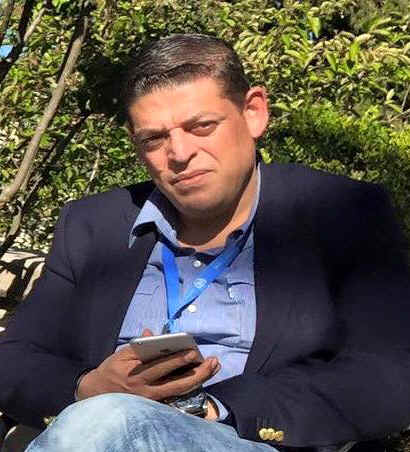
This time last year the strange organisation known as the Global Network for Rights and Development was preparing to host a lavish two-day conference at one of Switzerland's top hotels. Some 200 delegates flew in from 67 countries to hear GNRD's founder-president, Loai Deeb, announce a ludicrously unworkable plan for an "international convention" against terrorism. At least one of those taking part, a British MEP, was provided with a business class ticket to attend.
At the time, money seemed to be the least of GNRD's worries. Established in 2008 and based in Norway, it had expanded rapidly, opening branch offices in Belgium, Switzerland, Spain, Sudan, Jordan and the United Arab Emirates, with plans for others in Britain and the United States. It was also beginning to acquire some influence: it had recently been granted consultative status at the United Nations and was registered for lobbying purposes at the European Parliament in Brussels.
But suddenly, GNRD's ample funding turned into its biggest problem. Almost all its money had been coming from sources in the UAE, where Deeb also has business interests. For reasons which have yet to be explained, these transfers from the UAE triggered an alarm in the international banking system and last May Norwegian police raided GNRD's Stavanger headquarters, along with Deeb's, home, on suspicion of money-laundering. This was followed by further raids at GNRD and the home of two other employees in October. GNRD and Deeb deny money-laundering and claim the raids were instigated by the government of Qatar. The police investigation continues.
This was not Deeb's first run-in with the Norwegian authorities. His home had previously been the headquarters of a fake university which was closed down under the threat of legal action by Norway's education ministry. (For more background on Deeb and GNRD, see my compilation of previous blog posts.)
Earlier this week, Deeb, who is of Palestinian origin, posted a glum-looking photo of himself on Facebook with the words: "When life change to be Harder .. Change yourself to be stronger".
Since the police raids, GNRD has continued to function but there are indications that its Emirati funds may be drying up. One sign that it is actively looking for finance from elsewhere is its application for a 28,000-euro grant from the Spanish MAPFRE Foundation.
GNRD also seems to be scaling-back its day-to-day activities. One indicator is its Twitter feed, which contains only 11 new posts so far this year, compared with more than 60 in the same period last year. It's a similar picture on GNRD's own website, with just 10 new items posted so far this year, compared with 28 in the same period last year.
Actual activities this year, as reported on the website, seem rather low-key too. The Brussels branch has been collecting clothes to send to displaced Syrians; GNRD Spain organised a panel discussion on Palestine and concluded a series of workshops on personal development for the unemployed. The Spanish branch also has several ongoing projects in Latin America, however.
One potential brighter spot on the horizon is that GNRD Spain has secured EU backing (and presumably EU funding) for a project to combat bullying among young people, which is due to start next month. An announcement on its website says:
"The GNRD Spain office in Valencia recently had a six-month Erasmus+ project, accepted by the European Union, in which they engaged five other international organisations to combat bullying in all its forms.
"The Associatia Support for Youth Development (Romania), IFALL (Sweden), WalkTogether (Bulgaria), Associazione Futuro Digitale (Italy), and Seiklejate Vennaskond (Estonia), will collaborate with GNRD in the organisation of different interactive workshops and role-playing games in order to raise awareness amongst a selected group of European youth leaders about bullying and its consequences. The project, which is called ‘What can I do? Stop bullying, take action,’ will start in March 2016."
If GNRD succeeds in getting the 28,000-euro MAPFRE grant the money will be allocated to another anti-bullying project, this time in Ecuador.
Meanwhile, there seem to be problems at GNRD's office in Jordan. Towards the end of last year the office was looking for interns, and in November and December a group of students from the University of Jordan were put through what seemed to be a rigorous selection process.
One young woman, who says she was told she had passed, made plans to take up an internship at the Amman office in mid-January. Since then she has been struggling to re-establish contact. She says her emails have been ignored, she has been unable to get through on the phone and when she visited the office she found it closed.
The most recent accounts from GNRD's Jordanian branch, for the year to 30 September 2014, show that it started the year with assets of JD 201,000 (about $281,000), including a very healthy bank balance of JD 160,000. However, with spending during the year of JD 140,000 and income of only JD 4,000, these assets had dwindled by the end of the year to JD 65,000.
But the most striking feature of these accounts is that more than 80% of GNRD's Jordanian expenditure went on running costs (including JD 83,000 on salaries and JD 12,000 on rent). Spending on specific projects amounted to little more than JD 25,000, of which by far the largest amount – JD 18,000 – went on aid to the Zaatari refugee camp.

 RSS Feed
RSS Feed
